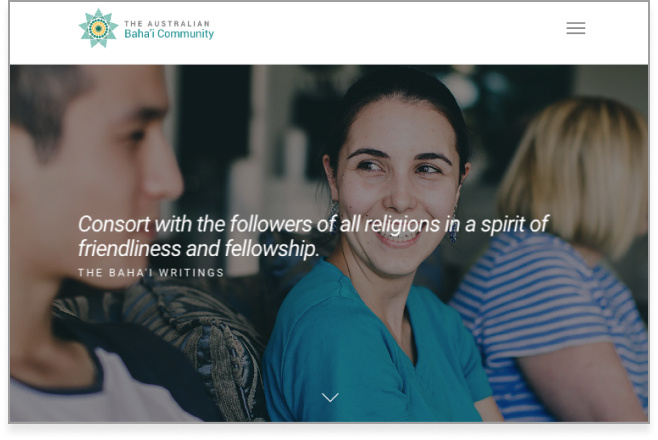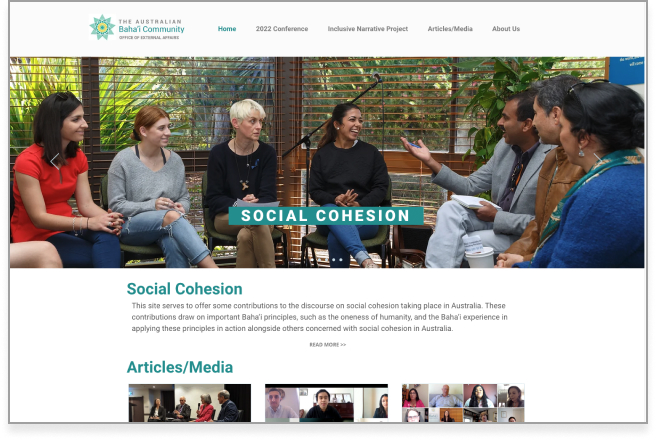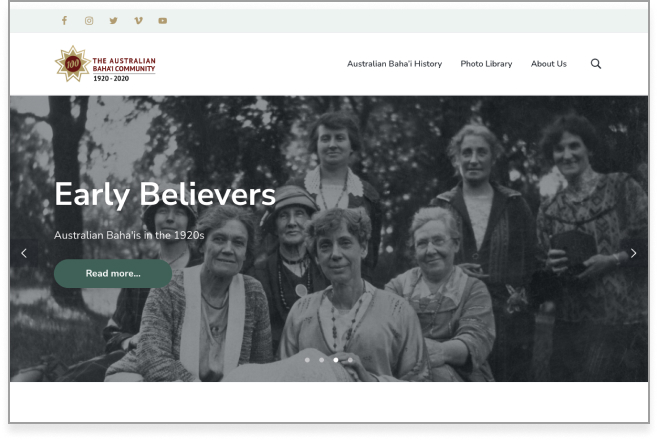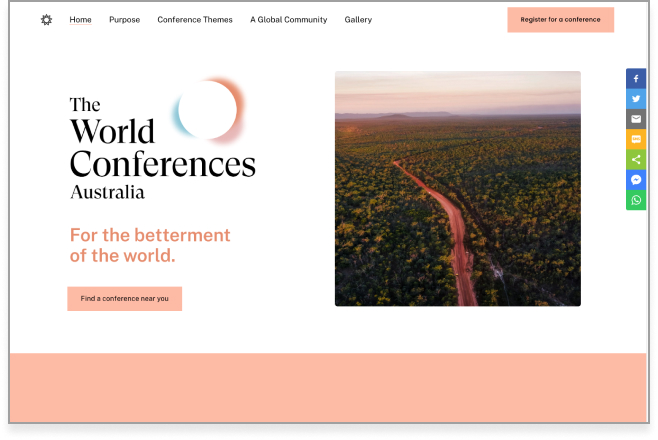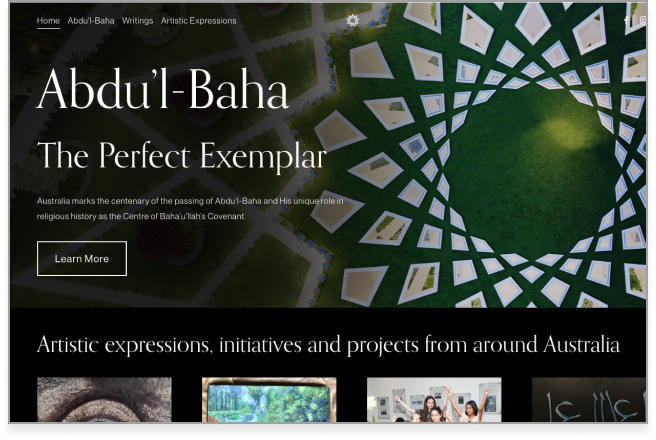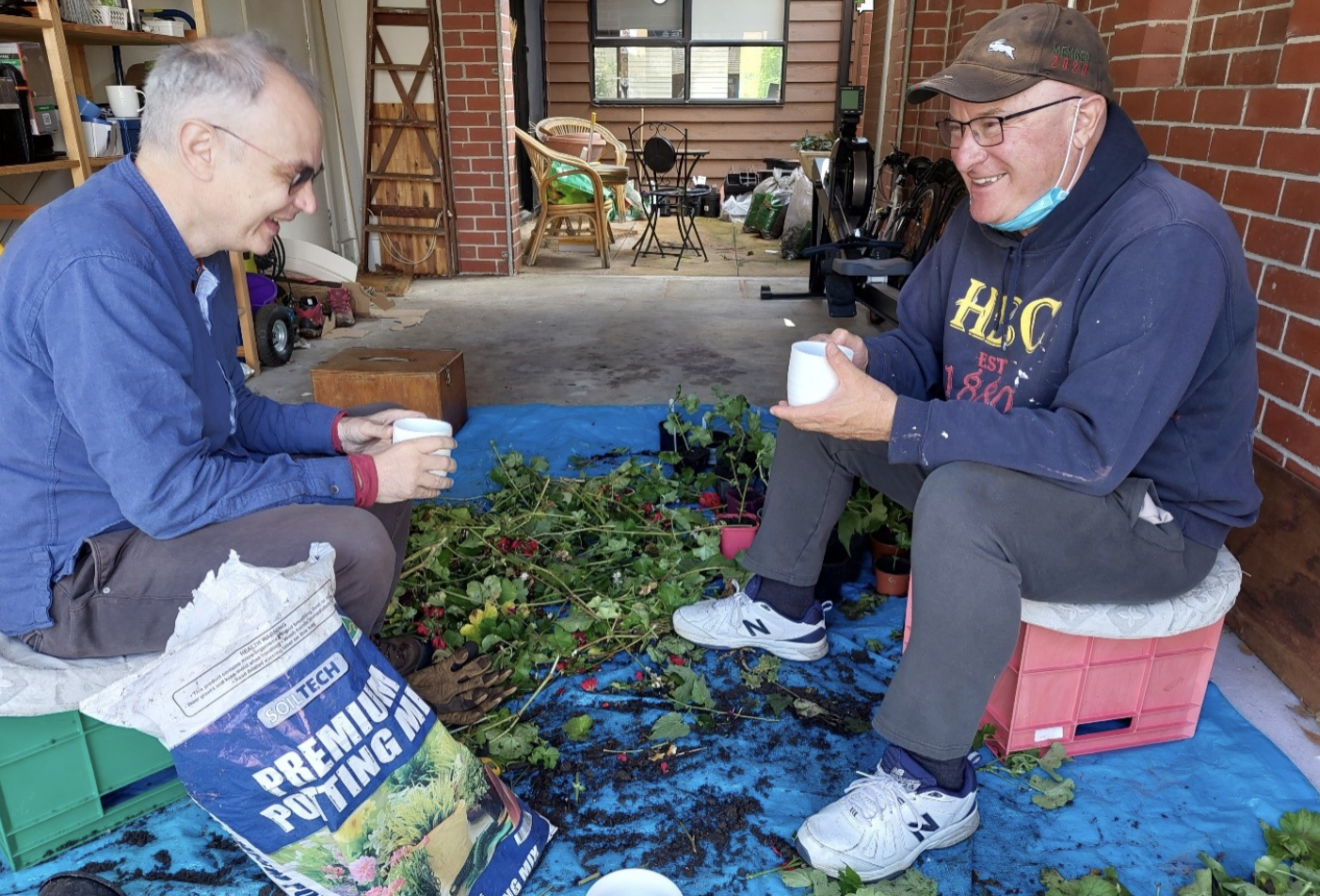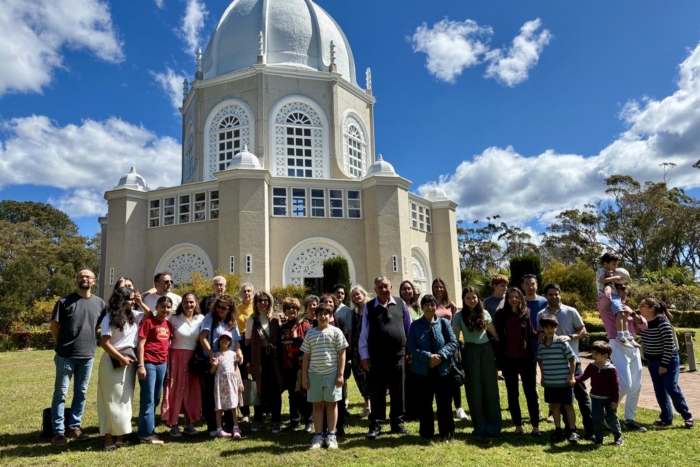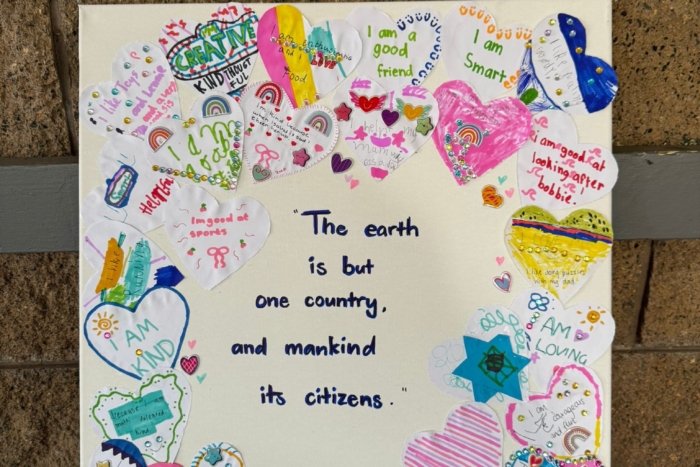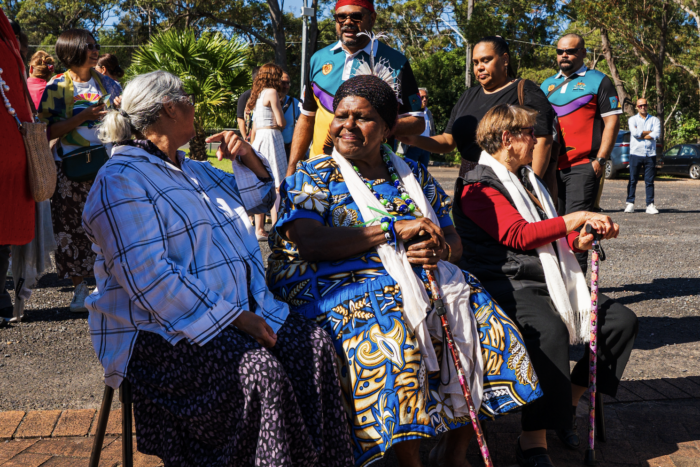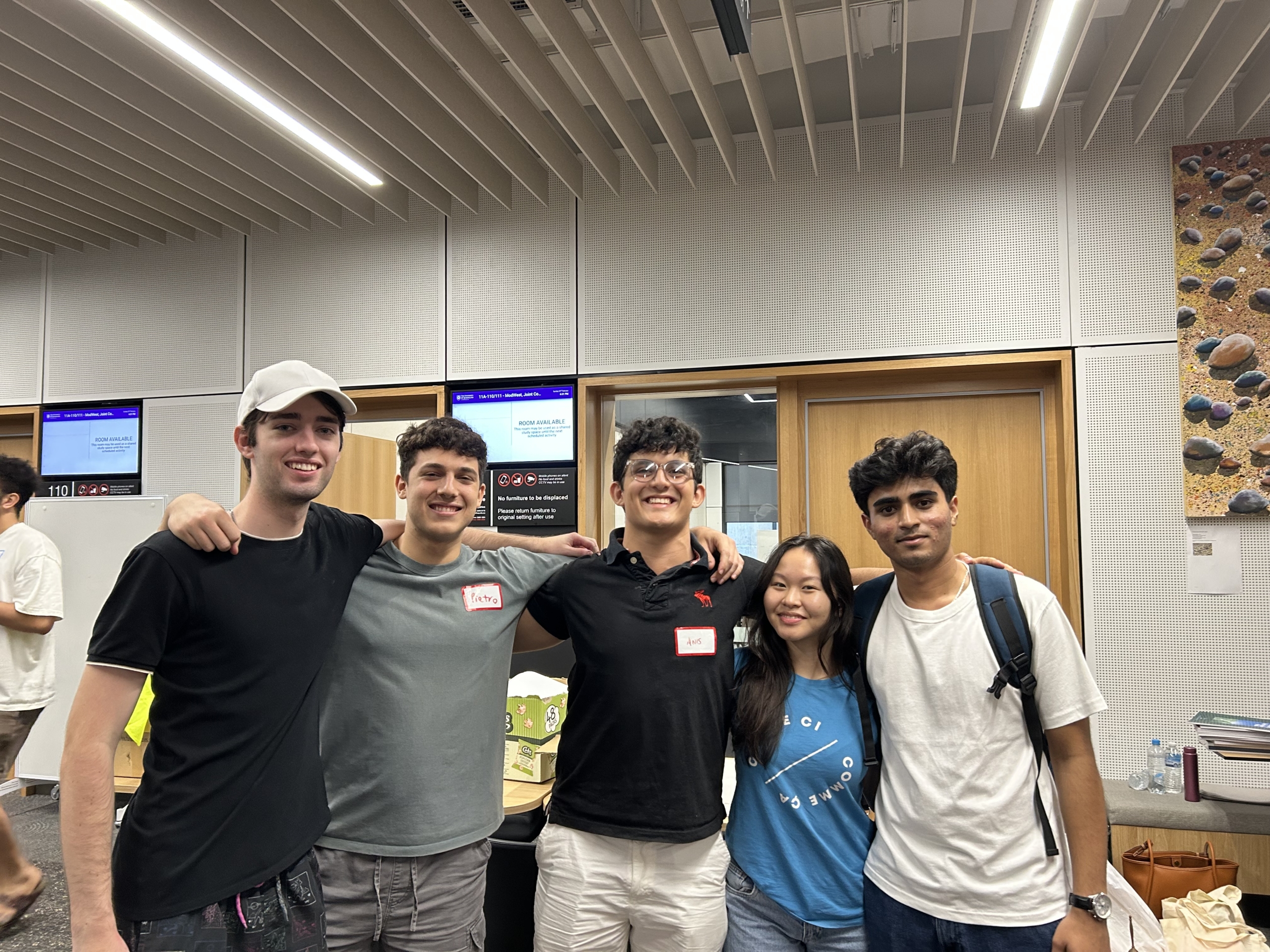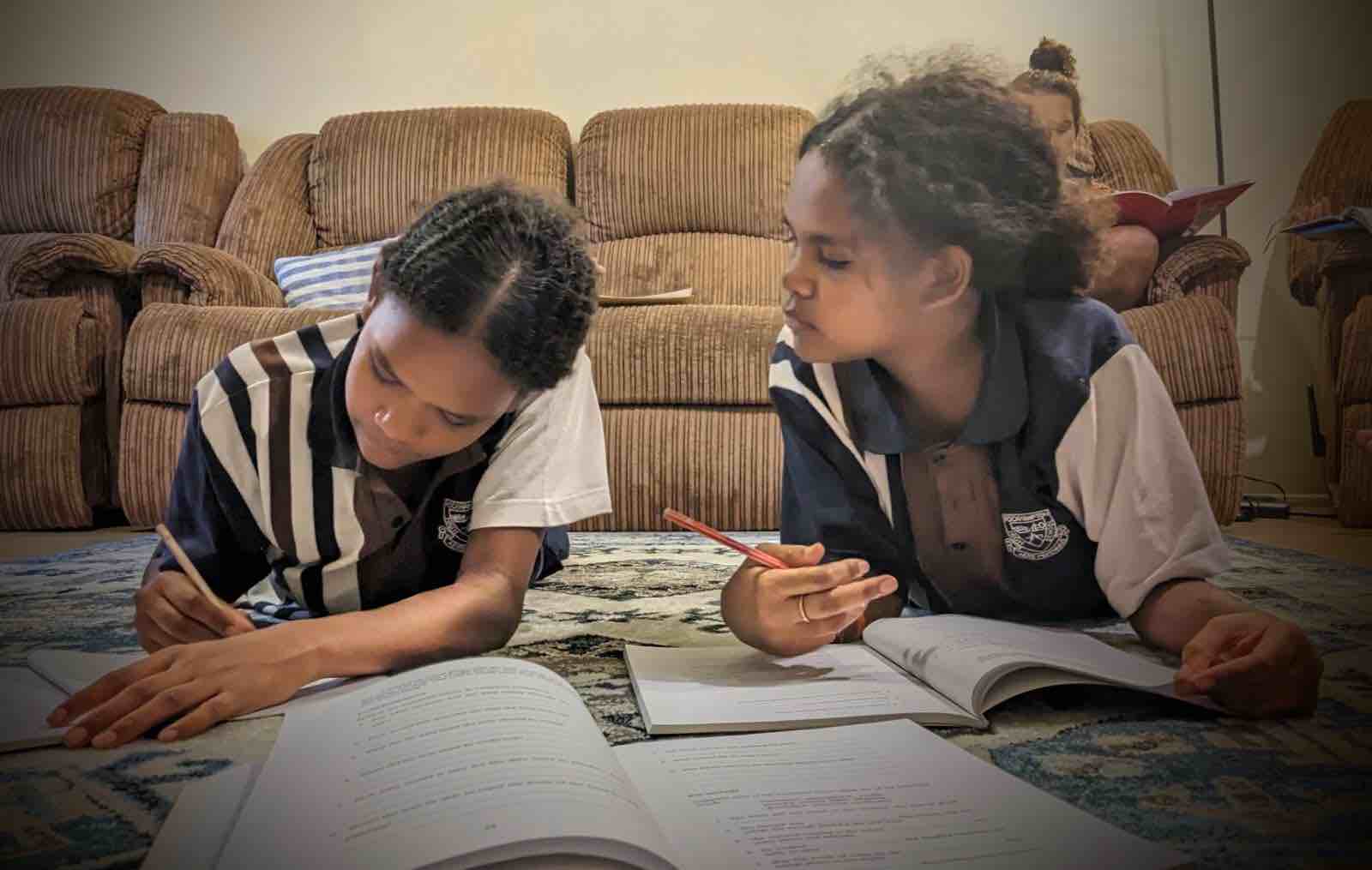‘Everyone is a collaborator’: Reflections on social action efforts in Richmond
Every morning, we had to clear up rubbish dumped overnight at the base of a small tree on the street in front of our place. Every. Single. Morning.
We live close to Victoria Street in North Richmond, an inner-urban area just a couple of kilometres from Melbourne’s central business district. It is a vibrant, multicultural place with great Asian restaurants. It is also a struggling area where rubbish, graffiti and signs of addiction are noticeable.
I was sick of the rubbish, but I had a plan. One Saturday I spent hours digging up the dry dirt, watering it and planting a few spare plants I had. It took hours and I only covered a small patch of dirt, but it did look better. However, as the weeks passed, one by one the plants disappeared. Other people thought they looked pretty too, so they dug them up and took them away.
The rubbish continued to be dumped each night. This was beyond me to fix by myself.
I asked friends for help.
One Saturday, a small group of people living in the North Richmond area and an old school friend got together and covered the garden with cheap or free plants – cuttings of geraniums and succulents, nasturtium seeds found on streets and some cheap bulbs. We also potted some plant cuttings and gave them away to neighbours. A person who worked opposite the garden patch kept an eye on the garden to ensure no-one stole the new plants.
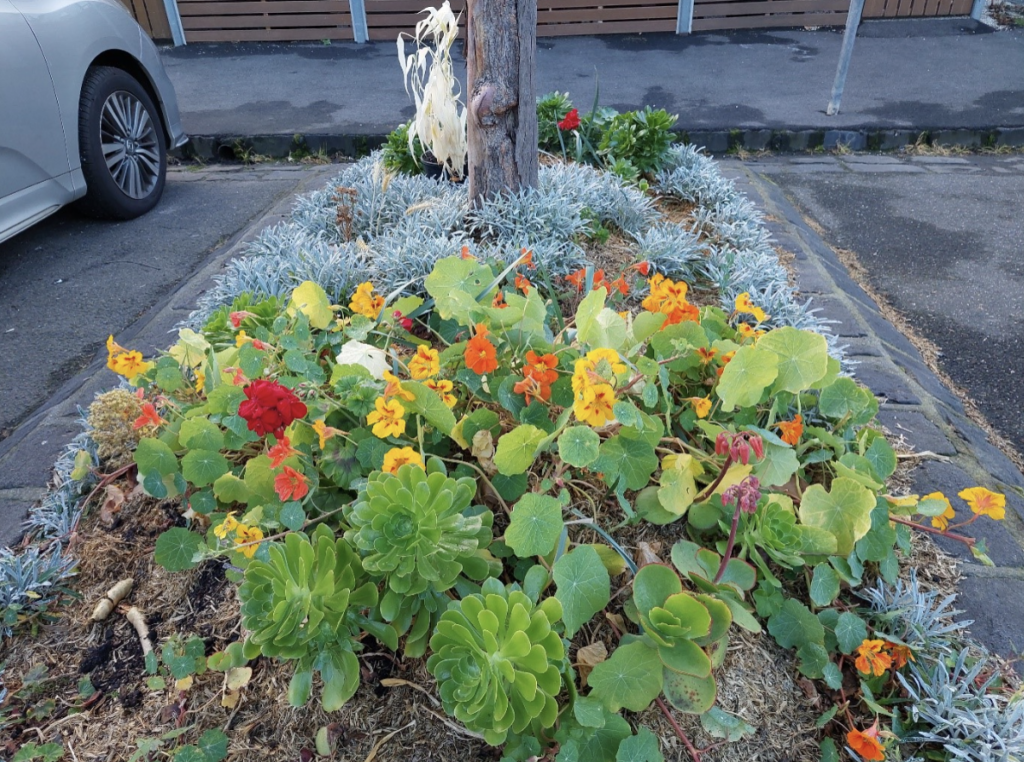
The rubbish dumping stopped immediately. The work and the fledgling beauty were respected by the rubbish dumpers. No rubbish dumping has occurred in the year since this garden was established.
The neighbours have expressed their delight. One neighbour said, “I have lived in this street for forty years and nobody has done this until you did it.” Others stop when we are weeding or watering it, saying how happy it makes them. When an elderly neighbour who speaks no English sees us, she points to the garden and smiles when she sees it.
It is not just about gardening – addressing social isolation
Our small group of four people realised that we could do more. We got together over a number of sessions to study the video about grassroots neighbourhood initiatives around the world called An Expansive Prospect. We paused the video regularly to discuss how we could apply the learning from the video to our neighbourhood where we lived. The group identified the issues in this neighbourhood and decided that while most of the issues were not things the group could address, the one thing that the group could help with is the issue of social isolation. The group saw that the street gardening efforts had the effect of starting conversations with neighbours. Through starting conversations, friendships develop, and people can potentially feel safer in their neighbourhood. Currently some people can feel fearful as a result of the dysfunctional behaviour of some people on the streets.
We also decided that ongoing prayer was essential for the success of the group’s initiatives and commenced fortnightly devotional gatherings in the grounds of housing commission towers. These devotional gatherings are the spiritual engine of our initiatives and provide a regular opportunity for the group to discuss themes from their devotional programme as well as consult on the work of the group.
“Blessed is the spot … where mention of God hath been made”, says Baha’u’llah. We walk through streets that are struggling to get to our meeting place to say prayers. One Sunday morning in early summer we shut our eyes to the problems we saw around us to say prayers. Then we discovered another hidden world surrounding us that we had never noticed. As we said prayers the birds in the gum trees sang and lifted our hearts. We felt the true potential of the area.
The street gardening efforts are also a service to the elderly mother of one of the group’s participants who lives in Hawthorn, a neighbouring suburb. Cuttings come from her garden as a result of the bi-annual garden maintenance two members of the group do in her garden. During the last working bee in her garden we invited a couple of people living in a neighbouring flat to help us.
The street gardening effort which launched our group has sparked ongoing conversations with neighbours and business owners in the neighbourhood. We were invited to help neighbours in another street nearby who were also suffering from a rubbish dumping problem. One Saturday morning we got to work in our garage. We upended large garbage bags full of cuttings from the Hawthorn garden, and placed them in small plastic pots that every gardener has to excess, together with potting soil donated by friends of the group. We chatted as we sat and potted over 60 plants.
We gave away the pots to plant babysitters to nurse over the summer. We did not want to plant them in the ground immediately because they would fail over the harsh, dry Melbourne summer. We wanted to give the recipients of the plants every chance to succeed in looking after the plants, by giving the plants to them in autumn.
We use the Baha’i calendar for planting. Nothing is planted until after Baha’i New year at the autumnal equinox around March 21st. Before then we can have days with harsh north winds and temperatures over 35 degrees which would kill baby plants. Spring plantings are ideally done prior to the Twin Holy Days in November to give the plants a chance to establish themselves before summer. Baha’i Holy Days are an opportunity to share what we do with others. We had a dinner and shared an original composition of orchestral music with neighbours and friends for the Birth of Baha’u’llah. At Riḍvan we brought cuttings from the Hawthorn working bee to connect our group’s story with attendees at our Baha’i community’s Ninth Day of Riḍvan celebration.
Our group has a rule: we collaborate with others, we don’t do things for others. The distinction is important. Following the guidance of the Universal House of Justice, we regard everyone as a collaborator, not a recipient of charity. The neighbour who was organising gardening in the street nearby just wanted plants. He did not want help with distributing them to neighbours or planting them. All we did was deliver the plants to him one Saturday morning. He said later that his neighbours had all taken plants for their gardens. The gardening had fulfilled its goal – it had strengthened bonds between neighbours in his street.
Two members of our group were invited to attend the official opening ceremony and reception for VIPs at the annual Lunar New Year Festival on Victoria Street earlier this year. This was a result of ongoing conversations about issues in the neighbourhood with an organiser of this festival who owns a business near our street garden. We also had a brief chat with the mayor about what our group has been doing and he invited us to meet him to hear more about it.
There are always challenges
No neighbourhood initiative exists without challenges and it is important that we talk about them along with our successes. It is not easy to do this. Persistence is needed. Our group has suffered a couple of setbacks during the year. One of the founding members moved out of the area, but the group found some more Baha’is who joined the group in late November. We only have four or five members in our core group at a time. We are at the very start of our group’s development and hope to include more people in our regular activities and consultation.
Over Melbourne’s winter, our group slows down and does not operate over a few weeks. It is hard to keep enthusiasm going when everyone huddles inside. There are plenty of potential garden areas around the streets where rubbish is dumped. We could simply become a gardening group and plant out lots of plots. However, our group does not want to start anything without the immediate neighbours properly consulted and fully involved. The immediate neighbours need to maintain the garden afterwards, by watering it, weeding it and where necessary, promptly removing any rubbish.
An example of household groups in high density neighourhoods
When people think of the groups of families proposed by the Universal House of Justice they may think of nuclear families with two parents and a couple of children in stand-alone houses with a front yard and a backyard. Our area is not like that. It is an area of high-density living. People live in flats or very small townhouses with barely enough room for the four rubbish bins provided by our council. We have very small rooms inside and for many people, the only gardening space available is on a balcony or the small patches of unpaved ground on the streets. Many young adults live in shared flats or by themselves. Older adults live in our area but their adult children live elsewhere. There are some traditional nuclear families, but many households which don’t fit that description.
The way our group operates by using parks for devotional gatherings and consultation as well as streets for gardening is one way household groups can operate in high-density neighbourhoods. Groups like ours can be a substitute family for young people who have moved to Melbourne from the country, interstate or from other countries. During the Baha’i Fast we had some group dinners to consult and support each other during the Fast. Our regular prayer meetings in the grounds of the housing commission towers help us develop friendships. The younger members of our group have said that it is important to them that our group has a mix of age-groups.
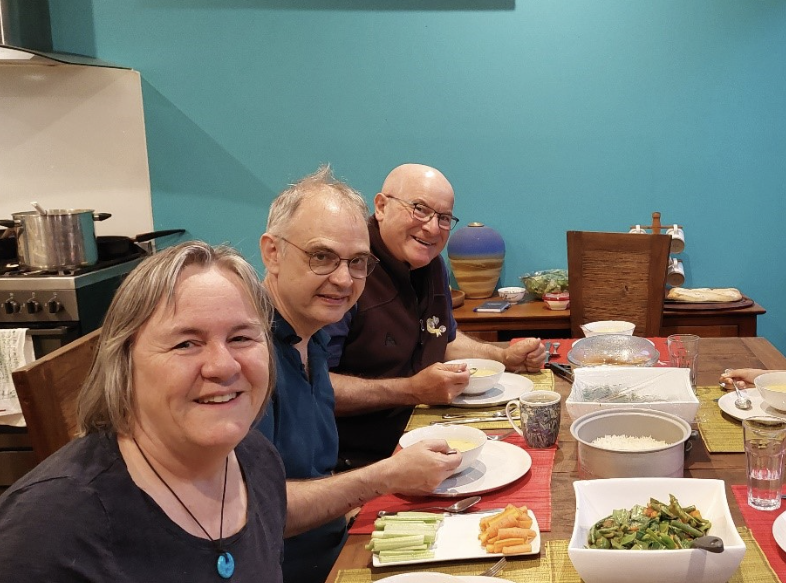
We are small and have to continue with determination and creativity to reach out to our neighbours so that together we can help each other and transform our neighbourhood. We hope that by sharing our story you too can start a small something to lift your neighbourhood too.
Thanks for reading.
Subscribe
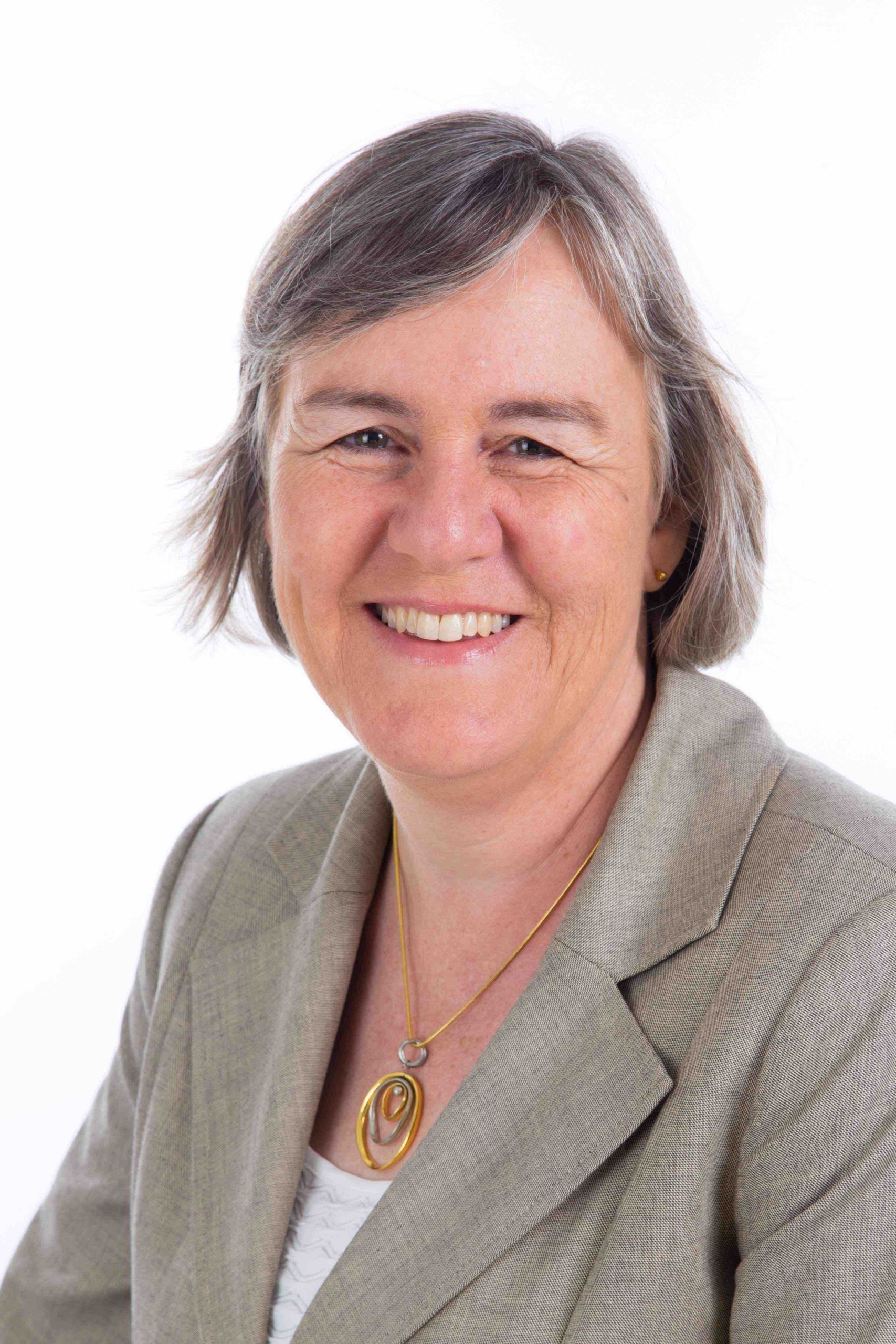
Yvonne Perkins
Yvonne Perkins has always been a writer. Over many years she has published articles in magazines, contributed to books, written many blog posts and supported Australian women authors and Indigenous authors by writing book reviews. Yvonne loves reporting the great contributions that others make to their community, whether this is a professional or academic community, […]
Published in September, 2024, in Individual Initiatives > Reflections
Available online at: horizons.bahai.org.au/individual-initiatives/everyone-is-a-collaborator-reflections-on-social-action-efforts-in-richmond/
Related Stories
An eastern suburbs community outing to the Baha’i Temple
In this personal reflection, Collis Ta’eed explores the meaning of a vibrant community, and how visits to the Baha’i House of Worship can further enrich that sense of vibrancy and unity. Earlier ...
From simple conversations to spiritual education sessions
In this interview with Australian Baha’i Horizons, Samin Todd reflects about the new spiritual education sessions initiated alongside families from her children’s school community, and how they ...
Confidence placed in young people’s ability to soar: a personal vignette
A youth from the Baha’i community of Brisbane has witnessed firsthand the level of trust and confidence placed in young people to contribute to the betterment of the world following a year of ...
‘I saw this Faith’: The story of Margaret Gabey
In this interview for Australian Baha’i Horizons, Dellaram Vreeland speaks to one of the longest-standing Baha’is on Thursday Island, Margaret Gabey, who shares her journey of Faith, and her ...
‘You have to start somewhere’: Making connections wherever you are
In this personal reflection, Leonie Oldmeadow shares how her small Baha’i community in the Bass Coast, Victoria, is striving to advance within the framework of the Nine Year Plan albeit the ...
‘No reason to shy away’: A young person’s reflection on inviting friends to community-building activities
In this personal reflection, 18-year-old Anis Mihrshahi shares his story about how he overcame his own fears and inhibitions to invite his friends to the Faith’s community-building ...


